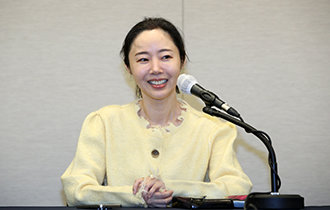Still 3 Years Apart on Command Shift
Still 3 Years Apart on Command Shift
Posted September. 16, 2006 03:50,
During the Korea-U.S. summit meeting held in Washington D.C. on September 15, the heads of the two countries agreed in principle on the return of wartime operational control, but they didnt comment on the stickiest issue, the return time of the control.
After the summit meeting with Korean President Roh Moo-hyun, U.S. President George W. Bush said at the press conference, The date for the return of wartime control will be adequately set though the continuous consultation between the two countries working-level officials.
Since the timing of return of wartime control is the core variable in setting up a new framework for the Korea-U.S. alliance, a fierce tug of war between the two countries over the timing of the return is expected until the annual ROK-U.S. Security Consultative Meeting (SCM) held in Washington D.C. next month.
The two sides are failing to bridge the differences over the timing of the return as Korea insists on 2012 and the U.S. sticks to 2009. To Koreas request that U.S. should give some time to Korea until it builds some level of capability to conduct a war independently, the U.S. refuses to budge on the grounds that if the two countries give too much lead time to the return, it can cause instability in the ROK-U.S. combined command system.
The U.S. reportedly expressed to Korea its concerns that if the U.S. accepts Koreas idea of returning control by 2012, it will worsen anti-American sentiment in Korean society as well as fuel political conflict between the two countries. One source of Koreas armed forces revealed the difficulty in the negotiation with the U.S. by saying, It was relatively easy until we climbed up 80 percent of the mountain, but it is really difficult to reach the top of it. Another military source said, If the timing of the return is set as 2009, it means that from the next year, we have to immediately start the joint military exercise in order to prepare for the return, which is very difficult realistically.
In this situation, it seems that Korea would persuade the U.S. to accept its idea of 2012 as best as it can, but in the worst case, the nation is likely to compromise one year and present 2011 as an alternative.
ysh1005@donga.com







